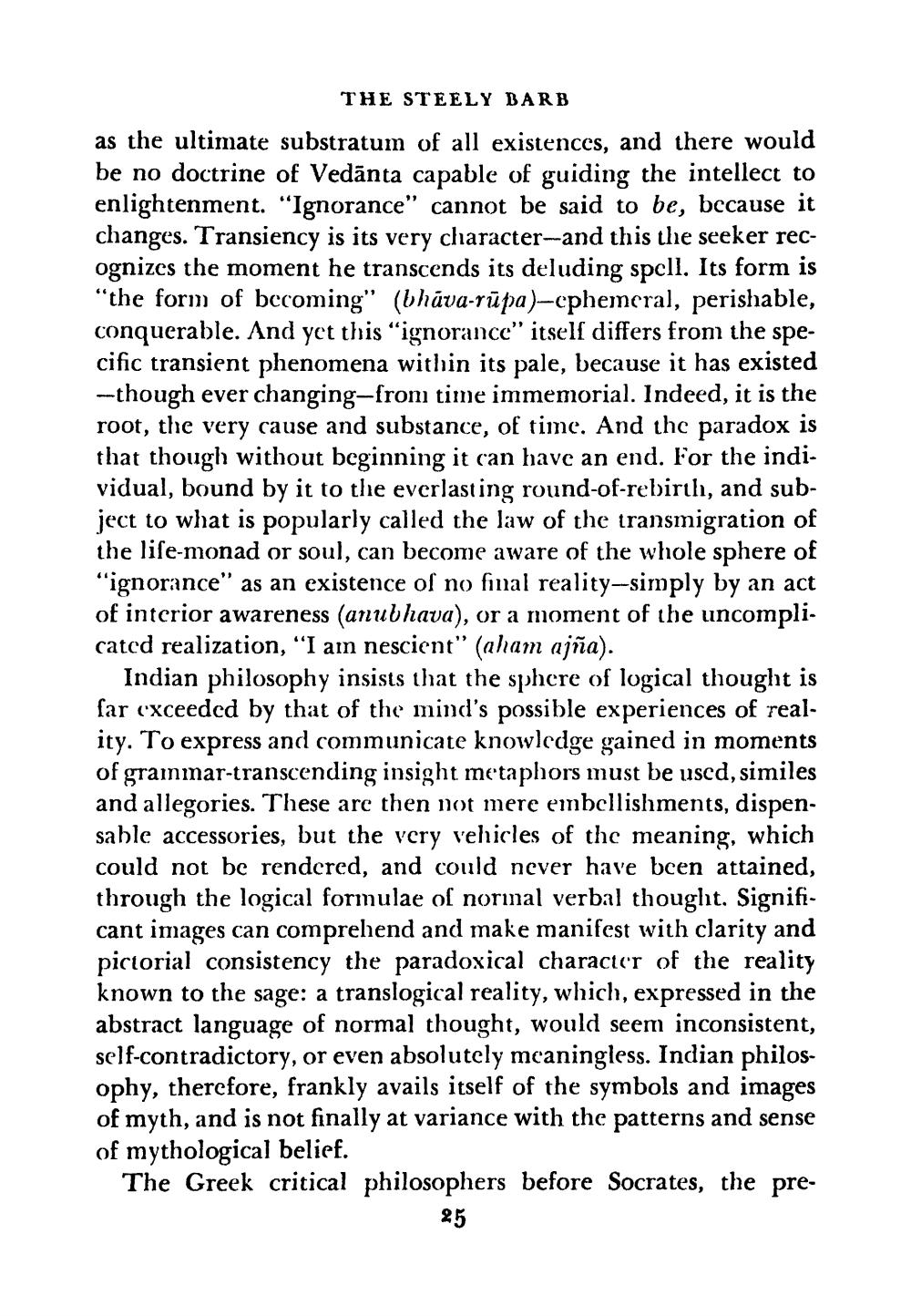________________
THE STEELY BARB
as the ultimate substratum of all existences, and there would be no doctrine of Vedanta capable of guiding the intellect to enlightenment. "Ignorance" cannot be said to be, because it changes. Transiency is its very character-and this the seeker recognizes the moment he transcends its deluding spell. Its form is "the form of becoming" (bhava-rupa)-ephemeral, perishable, conquerable. And yet this "ignorance" itself differs from the specific transient phenomena within its pale, because it has existed --though ever changing-from time immemorial. Indeed, it is the root, the very cause and substance, of time. And the paradox is that though without beginning it can have an end. For the individual, bound by it to the everlasting round-of-rebirth, and subject to what is popularly called the law of the transmigration of the life-monad or soul, can become aware of the whole sphere of "ignorance" as an existence of no final reality-simply by an act of interior awareness (anubhava), or a moment of the uncomplicated realization, "I am nescient" (aham ajña).
Indian philosophy insists that the sphere of logical thought is far exceeded by that of the mind's possible experiences of reality. To express and communicate knowledge gained in moments of grammar-transcending insight metaphors must be used, similes and allegories. These are then not mere embellishments, dispensable accessories, but the very vehicles of the meaning, which could not be rendered, and could never have been attained, through the logical formulae of normal verbal thought. Significant images can comprehend and make manifest with clarity and pictorial consistency the paradoxical character of the reality known to the sage: a translogical reality, which, expressed in the abstract language of normal thought, would seem inconsistent, self-contradictory, or even absolutely meaningless. Indian philosophy, therefore, frankly avails itself of the symbols and images of myth, and is not finally at variance with the patterns and sense of mythological belief.
The Greek critical philosophers before Socrates, the pre
25




